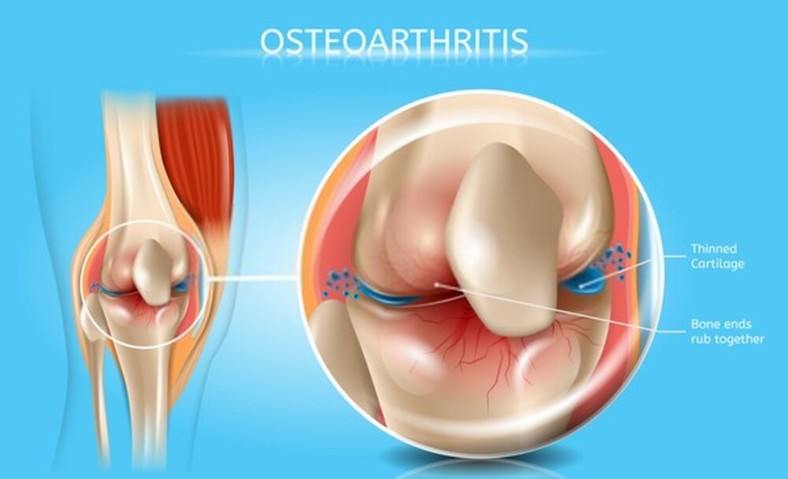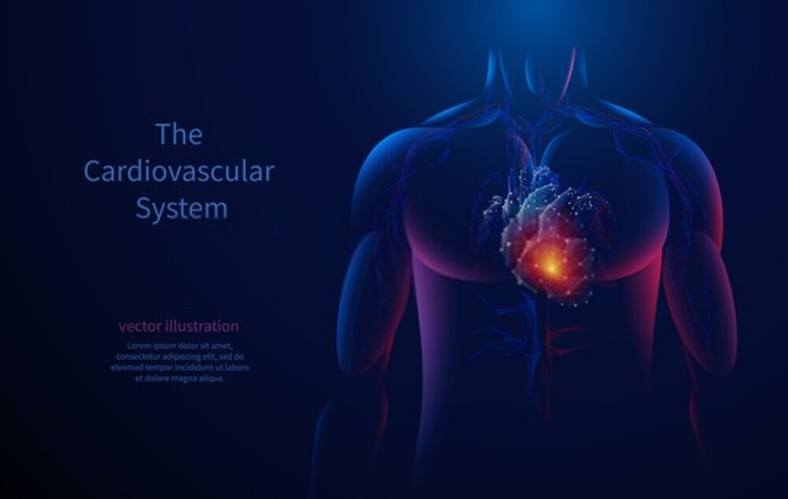Is it true that being overweight makes you look older than your age? Some studies have shown that overweight people appeared to be older by an average of 2.6 years than those at a healthy weight. For example, overweight middle-aged women were estimated to be around 40 years old compared to those at a healthy weight and around 36 years old on average.
Scientists believe that excess weight leads to a condition known as ‘skin slackening‘ where the skin around your face loses its elasticity and looks saggy. The facial fat pads also decrease with age, but if you are overweight, they diminish faster, which means your face will look wrinkled and sag sooner. It is not just our faces that show our age immediately when it comes to aging. Our bodies do as well. For example, if you are overweight, your nails may start curling by age 18, and your body fat will slowly increase over the years.
Family doctors are also starting to tell overweight patients that they also look older, so if you think you are young, think again. Like your face, you may not know how your body looks to the outside world until you gain weight. A study in 2007 showed that these effects could be seen at any age. This suggests that people who are overweight may not only look older but also act older.
Why Does Gaining Weight Make People Look Older?

For starters, being overweight has various effects on our skin’s health and looks (and our skin is how we “appear” to others). For example, it can lead to deep wrinkles, sagging skin, excess oils that clog pores, and an overall unattractive appearance.
These effects are all caused by what’s known as “acanthosis nigricans,” which occurs during insulin resistance. When your body stores more excess energy in the form of fat, hormone levels rise, so your skin grows thicker and darker. But since these changes are visible above the surface of our skin, weight gain also makes us “look older.” What about fat directly beneath the surface of our skin? It turns out that facial fat is not suitable for making us look older, either. If you have extra fat under your chin or on your jowls, it makes you look younger than if you have no subcutaneous fat at all.
Second, telomeres are the caps at the ends of chromosomes, which are the molecules that carry genes, and they are found inside our white blood cells. Telomeres shorten every time a cell divides. Telomeres eventually get so short that cells can no longer increase and die due to the normal aging process. The inevitable aging process occurs as more and more cells approach the end of their telomeres and die. In other words, as bodyweight rises, telomere length decreases, resulting in aging and hastening to age.
Factors that Make You Overweight
Portions and Eating Habits

When the diet provides energy over the needs, a quiet working life, less energy consumption will cause body weight to increase. Unfortunately, many people find it difficult to control their diet. The researchers suggest that eating just 70 calories a day in excess will lead to weight gain. However, these small calories may not be easily discernible, especially when we eat energy-rich foods. High-fat foods are often palatable, so it’s easy to overeat without realizing it. Weight gain can be caused by high-fat and high-sugar diets.
Other habits such as eating a lot of rice, eating a lot at dinner, preferring to eat foods with a lot of energy (sweet tea, confectionery, soft drinks, fatty meat, fast food, fried food (fried), fruit) too much sweet …, eating fewer vegetables are bad habits that can lead to the risk of obesity.
Physical Activity

Physical activity establishes a balance between energy expenditure and energy intake, so it plays a vital role in obesity. On the other hand, physical activity also helps the body to have a good metabolism. Therefore, along with dietary factors, increased obesity rates often correlate with decreased physical activity in sedentary lifestyles. It is worth noting that physically active people often eat energy-rich foods, but when working conditions and lifestyle changes, physical activity decreases, if they still keep the habit of eating a lot, they are often fat. . This explains the phenomenon of obesity in middle age, athletes after retirement or manual laborers after retirement.
Children in urban areas have a higher rate of obesity than in rural areas. In addition to the impact of economic conditions, children living in city environments almost lack opportunities to play outside, other than sitting in class. They often stay at home watching TV, watching food commercials, playing video games, and looking for food to be satisfied. Children in rural areas have more opportunities to be outdoors and participate in some fieldwork to help their parents, making them less obese.
Sleepless
According to studies, missing 30 minutes of sleep daily increases your risk of being overweight or obese by 17 percent. In addition, when you don’t get enough sleep, your ghrelin levels rise, making you feel ravenous and seeking sugary meals. It will eventually develop into an uncontrollable appetite, which is the cause of obesity and overweight.
What are the Harmful Effects of being Overweight besides Looking Old?
You have undoubtedly heard about the adverse effects that being overweight has on your health. And it’s true, carrying around excess weight can lead to all sorts of problems, including heart disease, type 2 diabetes, and several other illnesses.
Osteoarthritis

The arthritic condition osteoarthritis affects the musculoskeletal system. It affects joints in the body, including bones and cartilage. The most common symptoms are stiffness, swelling, and pain in the joint areas. Osteoarthritis most often affects weight-bearing joints (joints placed on them) like knees and hips. However, it can also affect other joints like hands or feet if they carry weight for long periods. Because their excess weight puts strain on their bones and joints, obese and overweight people are more likely to develop osteoarthritis, osteoporosis, and chronic discomfort. Knee joints and spine are injured the earliest. In addition, overweight and obese people are prone to gout.
Cardiovascular Disease

Dyslipidemia, commonly referred to as hyperlipidemia or high cholesterol, is common in people who are overweight. Atherosclerosis, high blood pressure, stroke, and heart attack are all symptoms of too much cholesterol. In contrast, obese people require the heart to work harder to pump blood to supply energy to the body, which overloads the heart in the long run, making them more susceptible to cardiovascular disease. As a result, overweight people have higher cardiovascular disease and mortality rates than the average person from cardiovascular diseases.
The Psychological Impact from the Oversized Appearance

Because being overweight enlarges the body, the owner feels inferior and believes he is unattractive when he loses his slimness and curves. Furthermore, overweight and obese persons frequently lose confidence in communicating, are fearful of appearing in public, are anxious, and are less adaptable in daily life, all of which affect work productivity…
Mental Illness
Obese persons typically have low self-esteem, shame, and fear when teased, mocked, laughed at, bullied, or stigmatized by others, making them vulnerable to mental diseases like stress, autism, melancholy, psychosis, and even suicide attempts. According to a study conducted in the United States, up to 40% of children who attend weight-loss treatment say they are often mocked or tormented by other family members. In comparison, up to 72% of women say they are bullied or humiliated by other family members. The fat responded that at least one person in their family made fun of them.
Obesity has been associated with a higher risk of heart disease, hypertension, diabetes, stroke, cognitive decline, and dementia. According to research, overweight people also experience brain atrophy in the basal ganglia, ray arc, and parietal lobe. In addition, according to the researchers, there was a significant unfavorable association between body fat tissue and brain structure in obese people and overweight people. “Obese people’s brains appear 16 years older than thin people’s brains, and overweight people’s brains appear eight years older,” adds Dr. Thompson.
Impact on Daily Life and Work

Being overweight causes the body to become enormous, and this appearance will hurt daily activities and jobs. Being overweight makes us less flexible in our movements, slows us down, makes tasks more complex, and makes us less active. Furthermore, the arrangements for overweight persons, such as transportation, sleeping or working quarters, and so on, are more bothersome and complex than usual.
Overweight persons have trouble breathing, have difficulty climbing stairs, and find it difficult to move normally. This is because when individuals gain too much weight, they exert too much pressure on their bodies. Therefore, when using public restrooms or public transportation, they may encounter numerous challenges… Not to mention that obese people and overweight people sweat more than ordinary people, necessitating extra caution. Therefore, personal cleanliness should be prioritized.
Furthermore, choosing to clothe for fat persons is difficult. Standard measurements do not fit them. Therefore they must tailor or shop at specialty businesses, which are, of course, more expensive. But even there, it is challenging to locate what they require; their options are limited because the diversity of goods is not as extensive as that of other mass commodities; they are sometimes obliged to accept what they require. Moreover, it doesn’t exactly fit my body, much less my tastes. Not to mention that not all colors, color schemes, or materials are appropriate for obese people’s faces and bodies.
How to Lose Weight?
You’ve probably heard of the term “Calorie Burning Worksheet” if you’re attempting to lose weight. You know it will help you burn more calories than usual. The problem is that these spreadsheets are not needed. They are of no use because they are not necessary if you do not determine to lose weight and your way of losing weight.
The answer lies in changing your mind about how to lose weight. What does that mean? This means there are tons of ways to start losing weight without using these calorie-burning worksheets. Weight loss is generally a long and arduous process. Therefore, it is necessary to combine many treatment methods to achieve good results. Currently, overweight treatments often apply a combination of diet, medication, exercise, and surgery.
Lose Weight by Adjusting Your Diet
Your diet provides you with more calories than your body requires. So, if you want to lose weight, get rid of the extra fat. The calories in everyday meals and dishes must be calculated appropriately. Guaranteed to be less than what the body consumes. In addition to calorie counting. Obese persons must eat the right foods daily:
- Processed foods should be avoided. Sugar, fat, and potentially dangerous ingredients abound in ready-to-eat foods.
- To obtain enough fiber, eat a lot of fresh vegetables, fruits, and whole grains. Weight loss is aided by this supplement, which helps the body to shed excess fat. Furthermore, fiber makes you feel fuller faster. As a result, there aren’t many cravings, and you’ll eat a lot.
- Choose low-calorie foods that make you feel satisfied. help make the weight-loss process less challenging
Exercise, Increase Exercise
You want to expend more energy. Exercise to lose weight while maintaining your health. The best technique is to increase mobility. However, this is a lengthy procedure and requires patience. Follow the weight loss exercise plan for at least two weeks – 1 month to get noticeable results. Moderate exercise is recommended for overweight adults. Lose weight and boost your health by exercising for 60 to 90 minutes a day.
Drug Treatment
Several drugs are available to help you burn more calories. To obtain faster outcomes, burn excess fat and help your weight loss process. However, for the treatment to be effective, it must be used with a healthy diet and regular exercise. If you take the drug alone, it will be ineffective. When weight loss drugs are utilized inappropriately, they can have adverse side effects. For example, it will impact the respiratory system, digestive problems, headaches, muscle and joint pain, and more. For information on how to take weight reduction tablets properly, please visit your doctor.
FAQs
Will gaining weight make me look younger?
Are not. It will make you look old. People who are overweight will lose elasticity and sag and causing facial skin to appear more wrinkles. If you are overweight or obese, remember to stay healthy! Eat a balanced diet with small portions of healthy foods. In addition, get active by walking for at least 30 minutes a day.
Does being skinny make you look younger?
No, this is not true. Being overweight makes you look older. This is because fat cells produce a hormone called leptin, which signals your body to slow down cell production and food storage as a defense against starvation or conditions similar to famine. This hormone tells your body that it doesn’t need to store as much energy anymore, accelerating the aging process throughout the body.
Will gaining weight fill out my face?
Yes. Because when you are overweight, your skin organization will become wrinkled, sagging skin. The sebum on your skin clogs the pores, thereby causing fat to accumulate, leading to obesity. your face is fill
Is weight loss surgery appropriate for me?
It all depends on your weight. Weight-loss surgery can be pretty beneficial, but it can also result in some unwelcome surgical complications. When a patient’s BMI is greater than 30, it is suggested that they undergo bariatric surgery. Other ways of weight loss have not proven successful. So, if you’re considering weight-loss surgery, it’s best to talk to your doctor first.
Is there a ‘fat’ gene?
Yes. We’ve found almost 400 genes linked to overweight and obesity so far, but only a few of them have a significant impact. Genes play a role in obesity in various ways, including influencing hunger, satiety, metabolism, appetite, body fat distribution, and the propensity to eat to reduce stress. Straight. The power of heredity has a varying impact on weight issues from person to person.
Is being overweight hereditary?
Yes. Genes that increase hunger, genes associated with energy metabolism, genes that regulate metabolism, and genes connected to the differentiation and growth of adipose tissue are all found in overweight people. In addition, if both parents or family members have these genes, their children’s chances of this gene are very high.
